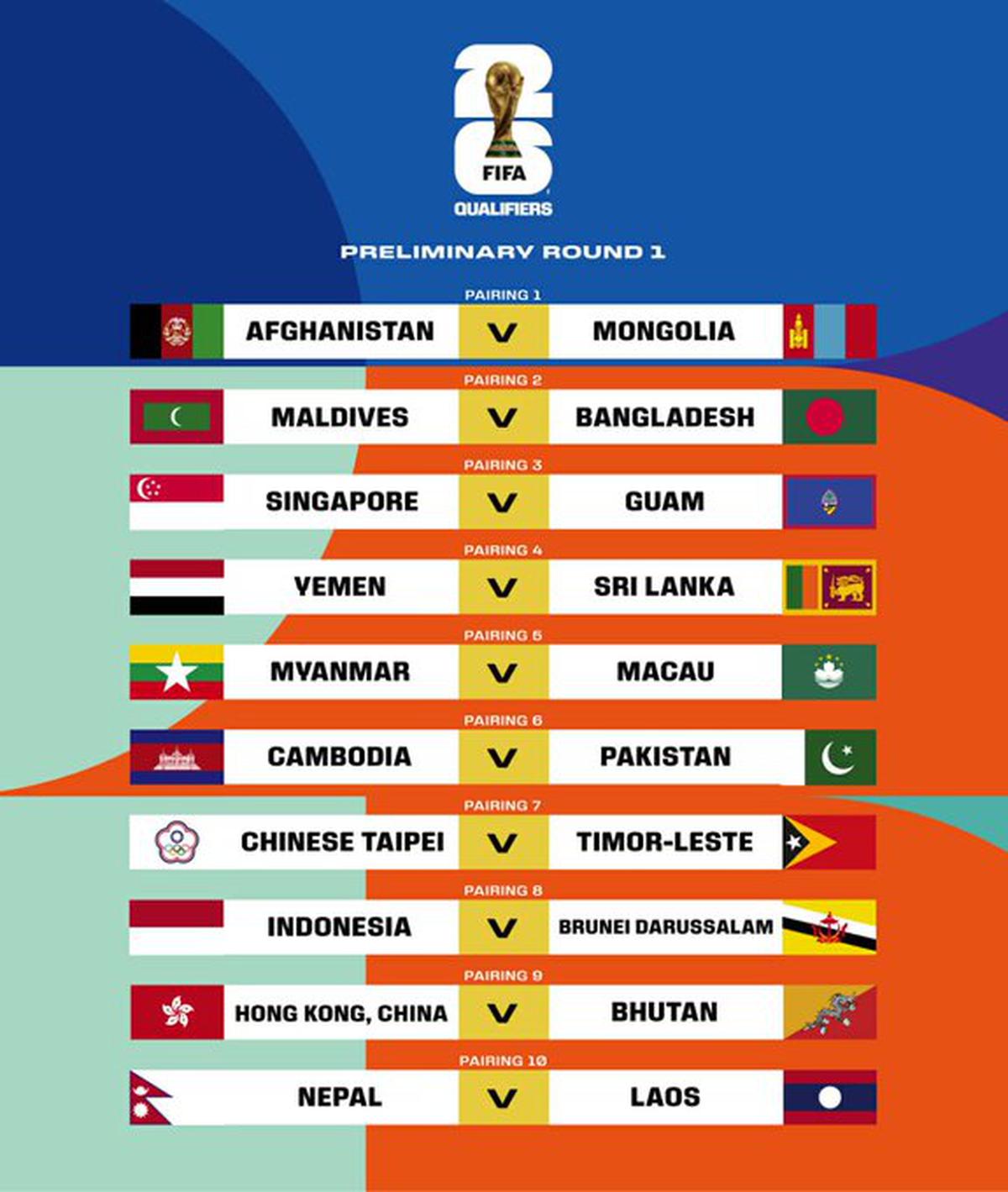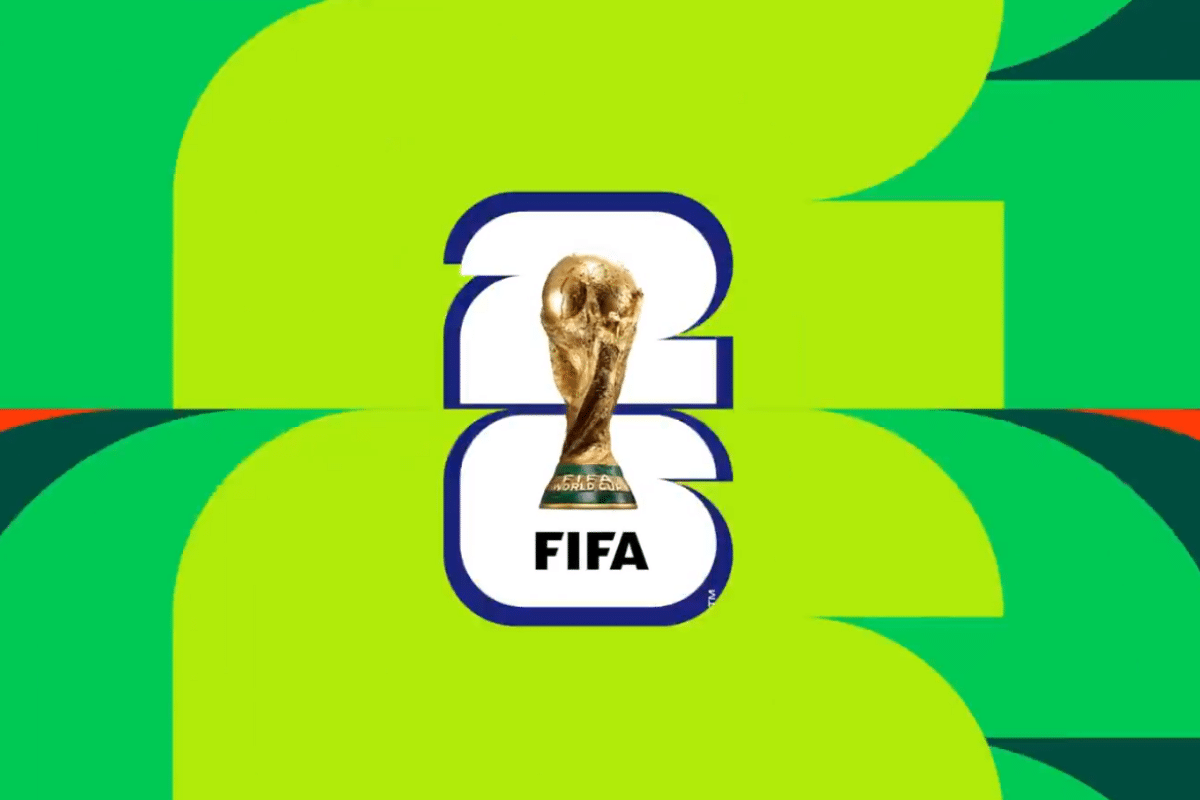Welcome, football enthusiasts, to a thrilling journey ahead as we embark on the road to the 2026 FIFA World Cup. The anticipation is palpable as teams from around the globe gear up for the qualification battles that will determine the contenders for one of the most prestigious football tournaments in the world. The 2026 FIFA World Cup qualification process promises to be fiercely competitive, with nations vying for their spot on the grand stage. From powerhouse teams to emerging talents, every match will be a test of skill, strategy, and determination. Join us as we explore the twists and turns of this exhilarating journey towards glory!
Introduction to the 2026 FIFA World Cup Qualification
As we look ahead to the 2026 FIFA World Cup, the journey to the prestigious tournament begins with the rigorous qualification process. National teams from around the globe will compete fiercely for a chance to secure a spot in the final tournament. The 2026 FIFA World Cup Qualification is the gateway for teams to showcase their skills and claim a position among the world’s best.
Qualification Criteria
Teams must navigate through the qualification rounds in their respective confederations to earn a ticket to the World Cup. Each confederation follows its unique qualification format, including group stages, playoffs, and direct entry based on rankings.
The road to the 2026 FIFA World Cup is paved with challenges and surprises, as teams battle it out on the field to secure their place in football history. Only the strongest and most strategic teams will emerge victorious and earn a chance to compete on the world stage.
Key Players and Contenders
As the qualification process unfolds, fans and pundits alike will keep a close eye on powerhouse teams and emerging contenders vying for a spot in the tournament. The stakes are high as nations put forward their best talents and strategies to outshine their opponents.
- Teams like Brazil, Germany, France, and Argentina are perennial favorites and will be closely watched during the qualification campaign.
- Underdog teams with rising potential, such as Belgium, Croatia, and Portugal, are also expected to make waves and challenge traditional football giants.

Overview of the Participating Teams
As we look forward to the 2026 FIFA World Cup Qualification, excitement is building around the teams that will be participating in this prestigious event. The tournament will feature a diverse range of national teams from around the world, each vying for a chance at glory on the biggest stage in football.
Contenders from Europe
European powerhouses such as France, Germany, and Spain are expected to be strong contenders for the title. With a history of success in international competitions, these teams boast talented players and experienced coaches.
Rising Stars from Asia and Africa
Teams from Asia and Africa, including the likes of Japan, Nigeria, and Egypt, are emerging as formidable opponents. Their skillful players and tactical prowess make them exciting teams to watch during the qualification process.
Key Matchups and Rivalries
As teams compete in the 2026 FIFA World Cup Qualifications, key matchups and rivalries add an extra layer of excitement to the journey. These encounters often showcase intense competition and longstanding feuds that captivate fans worldwide.
Top Contender Showdown
The clash between 2026 FIFA World Cup qualification top contenders is eagerly anticipated. It pits the best teams against each other, providing a glimpse of the fierce competition to come.
In this high-stakes battle, players bring their A-game as they aim to secure a spot in the prestigious tournament. The rivalry intensifies as each team battles for supremacy and the chance to represent their nation on a global stage.
Historical Rivalry Renewed
When traditional rivals face off during the 2026 FIFA World Cup qualification, the intensity reaches new heights. These matchups are steeped in history, with past encounters shaping the narrative of each game.
- Key matchups often spark unforgettable moments that live on in football lore.
- Emotions run high as players strive to outperform their rivals and claim victory.

Analysis of the Qualification Process
Qualifying for the 2026 FIFA World Cup is an arduous journey for national teams across the globe. The qualification process is a rigorous campaign that spans several years and involves multiple rounds of matches. Teams are required to compete in regional qualifiers, such as in Europe, Africa, Asia, North America, South America, and Oceania, to secure their spot in the prestigious tournament. The competition is fierce, with each team vying for a chance to showcase their skills on the world stage.
Regional Qualifiers
Nations must navigate through the regional qualifiers to earn their ticket to the 2026 FIFA World Cup. Each continent has its own unique qualification format, with teams competing against their regional rivals in a series of matches. For example, in Europe, teams participate in a group stage followed by knockout rounds to determine the qualifiers.
Teams must display consistency and skill throughout the qualifiers to accumulate enough points to secure their place in the tournament. The stakes are high, and every match is crucial in determining which teams will make it to the World Cup.
Intercontinental Playoffs
After the regional qualifiers, some regions may have intercontinental playoffs to determine the final spots in the World Cup. Teams that narrowly missed out on direct qualification have a second chance to earn their place through these playoffs.
- Teams from different regions face off in home-and-away matches to determine the ultimate qualifiers.
- The intensity and pressure are heightened during the intercontinental playoffs as teams fight tooth and nail for their spot in the tournament.
Notable Players and Rising Stars to Watch
As we journey through the 2026 FIFA World Cup Qualification, several players have caught the eye of fans and pundits alike. Let’s take a closer look at some of the notable players and rising stars to keep an eye on:
Key Players to Watch
One standout player to watch is Lionel Messi, who continues to mesmerize with his skill and experience on the field. His performance will be crucial for Argentina’s quest for World Cup glory.
Another key figure is Christian Pulisic from the United States, known for his speed and attacking prowess. His impact on the field can change the course of a game.
Rising Stars on the Horizon
Among the rising stars is Jadon Sancho from England, a young talent with exceptional dribbling skills and vision. His breakthrough could be a game-changer for the English team.
- Erling Haaland (Norway) – A scoring machine with incredible goal-scoring abilities.
- João Félix (Portugal) – A versatile attacker with immense potential.
- Reinier Jesus (Brazil) – A promising midfielder with a bright future ahead.
Implications of the Qualification Results
The qualification results of the 2026 FIFA World Cup have far-reaching implications on the global football stage. Teams that secure their spots in the tournament early gain a competitive edge by having more time to strategize and prepare. On the other hand, teams that narrowly miss out face disappointment and the need to regroup for future competitions.
Impact on Player Morale
The qualification results can have a significant impact on player morale and confidence. Securing a spot in the World Cup can boost team spirit and motivation, driving players to perform at their best. Conversely, failing to qualify can lead to despondency and self-doubt among players.
Shifting Dynamics in the Footballing Landscape
The qualification results also influence the global footballing landscape, shaping expectations for the upcoming tournament. Teams that perform well in the qualifiers emerge as strong contenders, while underdog stories can capture the imagination of fans worldwide.

Frequently Asked Questions
-
- What is the 2026 FIFA World Cup?
- The 2026 FIFA World Cup is the 23rd FIFA World Cup, a quadrennial international men’s football championship contested by the national teams of the member associations of FIFA.
-
- How many teams will participate in the 2026 FIFA World Cup?
- A total of 48 teams will participate in the 2026 FIFA World Cup, which is an increase from the 32 teams in previous editions.
-
- How will teams qualify for the 2026 FIFA World Cup?
- Teams will have to go through the qualification process organized by the six FIFA continental zones to secure a spot in the 2026 FIFA World Cup.
-
- What is the qualification process like for the 2026 FIFA World Cup?
- The qualification process consists of a series of matches and tournaments held within each continental zone to determine the teams that will qualify for the World Cup.
-
- What is meant by the ‘Road to Glory’ in the 2026 FIFA World Cup Qualification?
- The ‘Road to Glory’ signifies the journey that national teams undertake as they navigate through the qualification process with the ultimate goal of reaching and succeeding in the FIFA World Cup.
The Thrilling Journey Ahead: Conclusion
As we delve into the exciting world of 2026 FIFA World Cup qualification, it becomes evident that the road to glory is paved with challenges, determination, and unwavering passion for the sport. National teams from around the globe are gearing up for the ultimate showdown, each vying for a chance to showcase their talent on the grandest stage of them all.
From intense matches to unexpected upsets, this qualification period promises to be a rollercoaster ride filled with unforgettable moments. As fans, we are in for a treat as we witness the drama unfold and the best teams emerge victorious. So, buckle up and get ready for an epic journey towards the 2026 FIFA World Cup!

